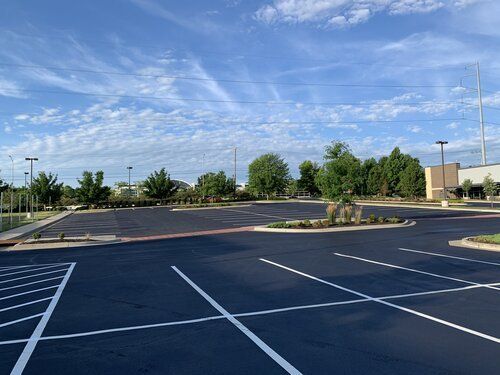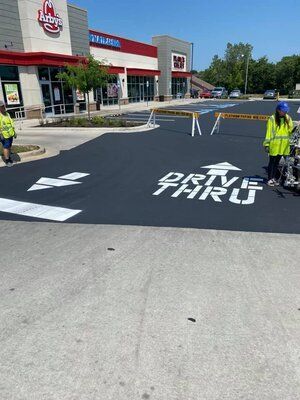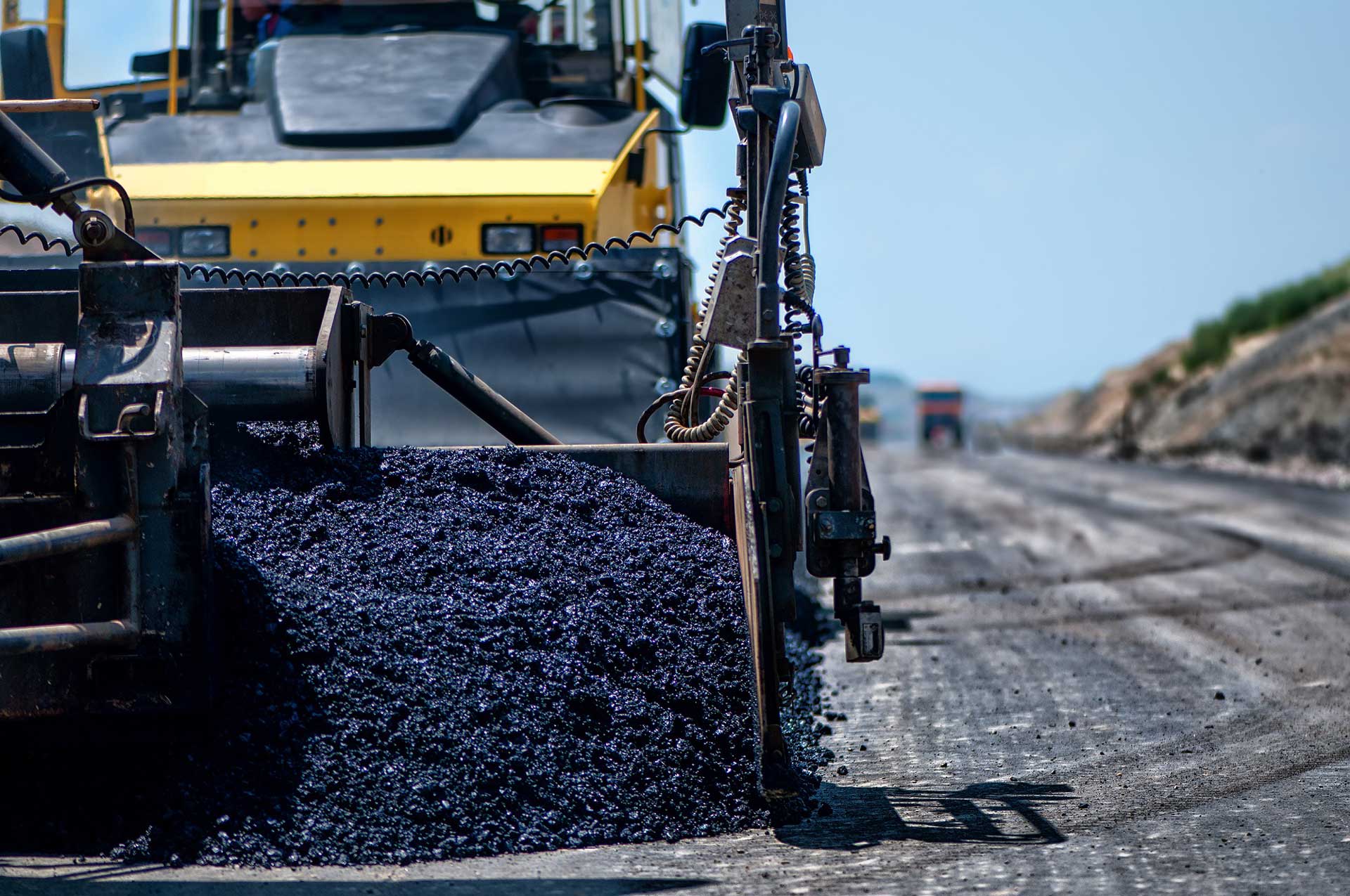Introduction
Maintaining a commercial parking lot is no small feat. A well-maintained parking lot does more than just provide a place for customers to park; it reflects the overall condition of your business and can significantly impact customer perceptions. Whether you're managing a small retail outlet paving companies near me or a sprawling complex, understanding the nuances of parking lot maintenance is crucial. This comprehensive guide offers expert tips on maintaining commercial parking lots year-round, covering everything from asphalt paving services to sealcoating techniques.
Expert Tips on Maintaining Commercial Parking Lots Year-Round
Keeping your commercial parking lot in good shape year-round requires regular maintenance, strategic planning, and sometimes professional help. Here are some essential tips to ensure your parking lot remains safe, functional, and aesthetically pleasing.
1. Understanding Asphalt and Its Importance
Asphalt is the most common material used in commercial parking lots due to its durability and cost-effectiveness. Knowing how asphalt behaves under different weather conditions can help you make better maintenance decisions.
1.1 What Is Asphalt?
Asphalt is made from a mixture of aggregates (like sand and gravel) bound together by asphalt cement. It's designed to withstand heavy loads while being flexible enough to handle temperature changes.
1.2 Benefits of Asphalt Paving
- Cost-Effective: Generally cheaper than concrete options. Quick Installation: Asphalt paving can often be completed in a day. Durability: Well-maintained asphalt can last up to 20 years.
2. Choosing the Right Asphalt Paving Contractors
Selecting an experienced contractor is crucial for ensuring quality work that lasts.
2.1 How to Select Asphalt Companies?
When looking for asphalt companies, consider their experience, customer reviews, and previous projects.
Tips:
- Ask for references. Verify licenses and insurance. Get multiple quotes to compare prices.
3. Calculating Asphalt Paving Costs
Understanding asphalt paving costs will help you budget effectively for repairs or new installations.
3.1 Factors Affecting Asphalt Paving Cost
- Size of the area Thickness of the asphalt layer Type of materials used
Average Cost: The average cost per square foot ranges from $3 to $7 depending on these factors.
4. Regular Inspections: The Key to Longevity
Routine inspections can catch minor issues before they become major repairs.
4.1 What Should You Look For?
Inspect for:

- Cracks Potholes Drainage issues
5. Keeping Up with Asphalt Maintenance
Regular maintenance practices are essential for preserving your investment in your parking lot.
5.1 Routine Cleaning Procedures
Cleaning should include:
- Removing debris Sweeping away dirt and leaves
Why Clean? Regular cleaning helps prevent water pooling that leads to damage over time.
6. Sealcoating: Your Best Friend in Protection
Sealcoating acts as a protective barrier against weather elements and traffic wear.
6.1 Benefits of Sealcoating for Asphalt Driveways
Sealcoating:

- Extends lifespan Enhances appearance
What’s the Cost? Sealcoating typically costs between $0.10 - $0.25 per square foot but varies based on location and company rates.
7. Timing Your Sealcoating Application
Knowing when to apply sealcoat is crucial for maximizing its effectiveness.
7.1 Best Time of Year for Sealcoating
Late spring or early fall is ideal due to moderate temperatures that allow proper curing times.
8. Repairing Cracks Before They Worsen
Crack sealing prevents water infiltration which can lead to more extensive damage.
8.1 Types of Crack Repairs
Identify cracks:
- Small cracks can be filled with crack sealant. Larger cracks may need patching with hot mix asphalt or cold patch products.
9. Patching Potholes Effectively
Potholes can cause significant damage if left unattended; swift action will save money in the long run.
9.1 How Do You Patch a Pothole?
Steps include:

Remove loose debris. Fill with appropriate material. Compact thoroughly for durability.
FAQ Section
1: How Often Should I Sealcoat My Parking Lot?
Sealcoating should generally be performed every 2–3 years depending on traffic levels and weather conditions.
2: What’s the Average Lifespan of an Asphalt Parking Lot?
With proper maintenance, an asphalt parking lot can last between 15–20 years before needing complete repaving or resurfacing.
3: How Do I Choose Between Resurfacing vs Repaving?
Resurfacing involves applying a new layer over existing asphalt, suitable if your base layer is intact but has surface wear; repaving involves removing old material entirely—ideal for extensive damage or deterioration.
4: Can I DIY My Parking Lot Maintenance?
While some tasks like cleaning are manageable DIY projects, hiring professionals is advisable for complex jobs such as crack sealing or sealcoating due to required expertise and equipment.
5: What Are ADA-Compliant Parking Lot Striping Guidelines?
ADA compliance includes specific requirements regarding space dimensions, signage placement, and accessibility features; consult local regulations or professionals specializing in ADA-compliant striping services for guidance.
6: What’s Included in Professional Parking Lot Striping Services?
Professional striping services typically involve layout design according to zoning regulations, application of high-quality paint designed for durability, custom markings like fire lanes or reserved spots, and ensuring compliance with local laws regarding signage and accessibility.
Conclusion
In summary, maintaining commercial parking lots year-round requires attention to detail, proactive measures, and often professional assistance from trusted asphalt paving contractors or companies specializing in commercial paving services like sealcoating and striping services for effective ongoing upkeep.
By employing these expert tips on maintaining commercial parking lots year-round—as well as consulting with professionals when necessary—you'll ensure that your facility remains not only functional but also inviting for customers throughout every season!